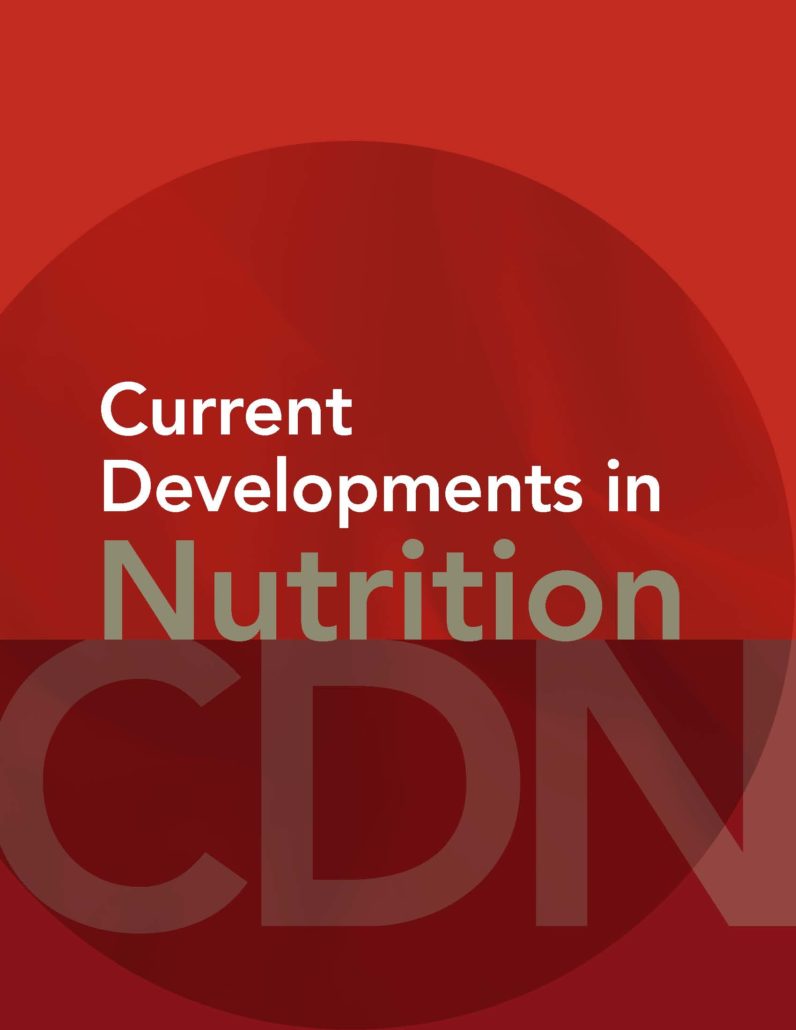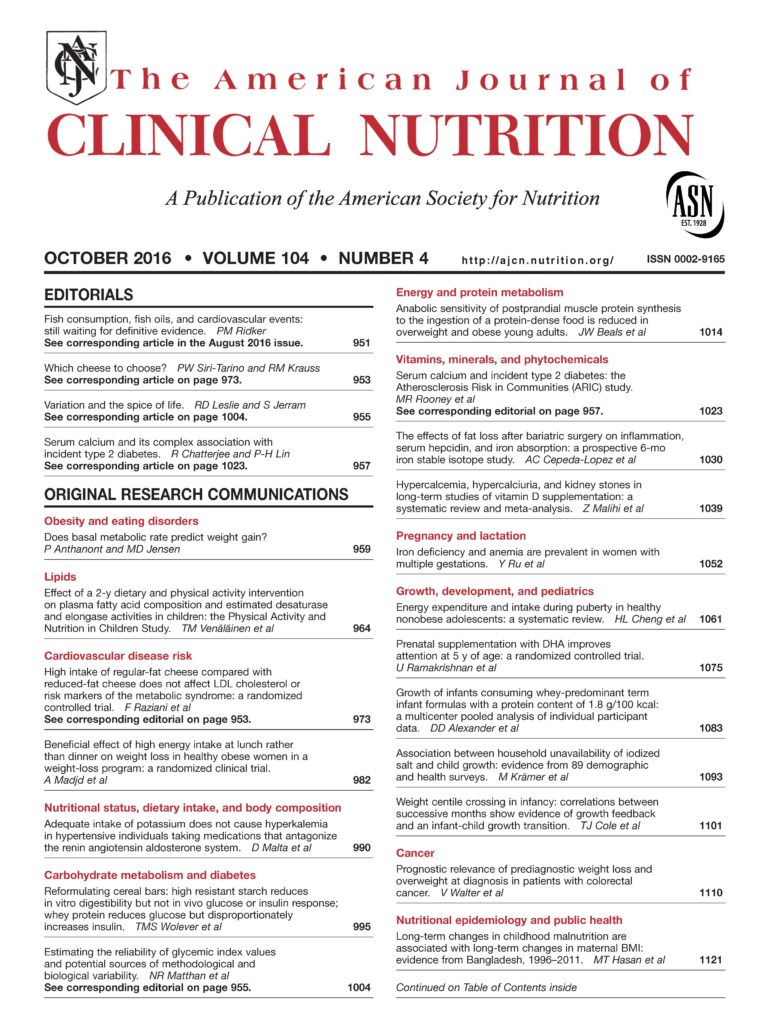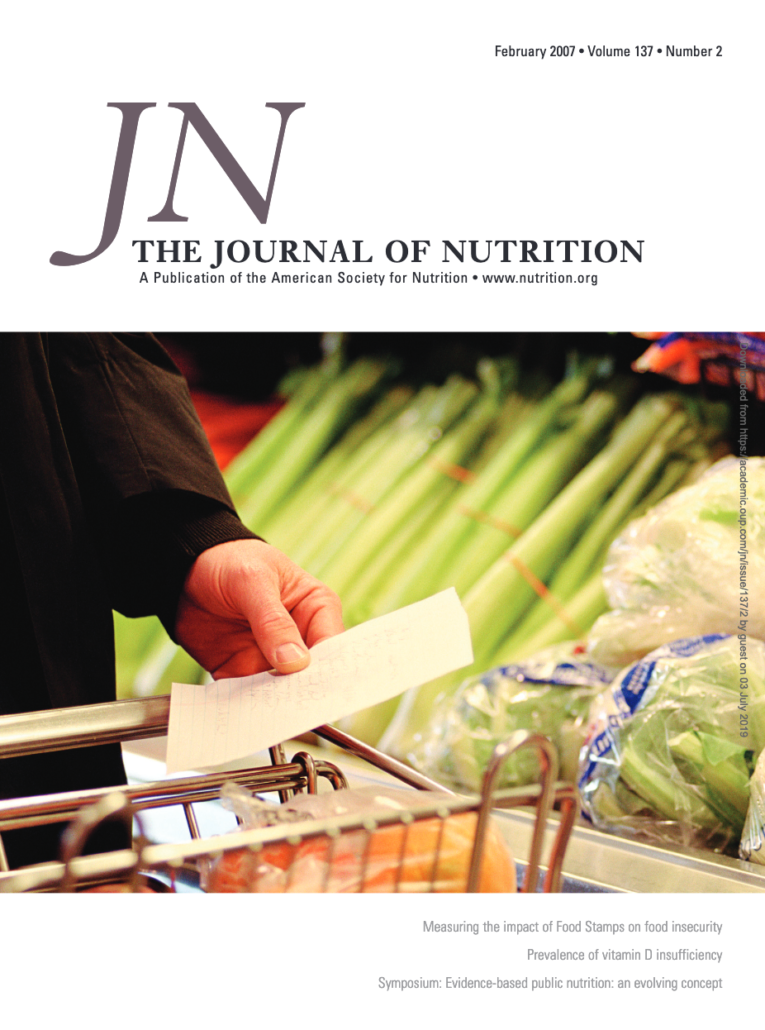Just-published nutrition research has hit the news this week, and some older nutrition research has resurfaced. Keep reading to find out what’s trending from ASN Journals the week of July 1, 2019.
Association Between Organic Food Consumption and Breast Cancer Risk: Findings from the Sister Study (P18-038-19)

Current Developments in Nutrition, Volume 3, Issue Supplement_1, June 2019, nzz039.P18-038-19, https://doi.org/10.1093/cdn/nzz039.P18-038-19
Objectives: Diet is a source of exposure to pesticides. Organic food consumption may lower cancer risk, possibly due to decreased exposure to pesticides. Few studies have investigated the association between organic food consumption and cancer risk and evidence on the risk of breast cancer is limited.
Branched-chain amino acid and branched-chain ketoacid ingestion increases muscle protein synthesis rates in vivo in older adults: a double-blind, randomized trial

The American Journal of Clinical Nutrition, nqz120, https://doi.org/10.1093/ajcn/nqz120
Background: Protein ingestion increases muscle protein synthesis rates. However, limited data are currently available on the effects of branched-chain amino acid (BCAA) and branched-chain ketoacid (BCKA) ingestion on postprandial muscle protein synthesis rates.
Objective: To compare the impact of ingesting 6 g BCAA, 6 g BCKA, and 30 g milk protein (MILK) on the postprandial rise in circulating amino acid concentrations and subsequent myofibrillar protein synthesis rates in older males.
Join ASN!
And get access to immersive learning experiences, collaboration, and networking with the greatest minds in nutrition.
Increased Lean Red Meat Intake Does Not Elevate Markers of Oxidative Stress and Inflammation in Humans

The Journal of Nutrition, Volume 137, Issue 2, February 2007, Pages 363–367, https://doi.org/10.1093/jn/137.2.363
Abstract: Red meat intake has been associated with increased risk of coronary heart disease and type 2 diabetes, but it remains uncertain whether these associations are causally related to unprocessed lean red meat. It has been proposed that iron derived from red meat may increase iron stores and initiate oxidative damage and inflammation. We aimed to determine whether an increase in unprocessed lean red meat intake, partially replacing carbohydrate-rich foods, adversely influences markers of oxidative stress and inflammation. Sixty participants completed an 8-wk parallel-designed study. They were randomized to maintain their usual diet (control) or to partially replace energy from carbohydrate-rich foods with ∼200 g/d of lean red meat (red meat) in isoenergetic diets. Markers of oxidative stress and inflammation were measured at baseline and at the end of intervention. Results are presented as the mean between-group difference in change and [95% CI]. Red meat, relative to control, resulted in: higher protein [5.3 (3.7, 6.9) % of energy], lower carbohydrate [−5.3 (−7.9, −2.7) % of energy], and higher iron [3.2 (1.1, 5.4) mg/d] intakes; lower urinary F2-isoprostane excretion [−137 (−264, −9) pmol/mmol creatinine], lower leukocyte [−0.51 (−0.99, −0.02) ×109/L] counts, and a trend for lower serum C-reactive protein concentrations [−1.6 (−3.3, 0.0) mg/L, P = 0.06]; and no differences in concentrations of plasma F2-isoprostanes [−12 (−122, 100) pmol/L], serum γ-glytamyltransferase [−0.8 (−3.2, 1.5) U/L], serum amyloid A protein [−1.4 (−3.4, 0.5) mg/L], and plasma fibrinogen concentrations [−0.08 (−0.40. 0.24) g/L]. Our results suggest that partial replacement of dietary carbohydrate with protein from lean red meat does not elevate oxidative stress or inflammation.





